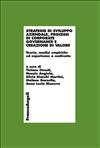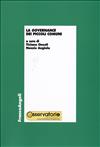
LIBRI DI TIZIANO ONESTI




The COVID-19 outbreak has impacted significantly on the movements of goods and people through the world causing interruptions at many levels in the financial and industrial environment with a significant impact on financial reporting. The purpose of the following review is to analyse some of the main accounting implications of the outbreak in the IFRS financial statements and the first responses at international level by the standard-setters. In the first part, the analysis will be focused first on the main implications for periods ended on 31 December 2019 and then on the effects for the 2020 reporting periods onward. As per 2008 global financial crisis (GFC), that began in 2007 with a depreciation in the subprime mortgage market in the United States, the main international standard-setters (IASB and FASB) has proposed amendments of the standards to react to some implications of the COVID-19 pandemic. In the second part of this review will be summarised the main responses, including the documents and proposed amendments issued by the IASB regard-ing IFRS 16 Leases accounting for lease concessions related to the effects of the COVID-19 pandemic.

The disclosure in financial statements is one of the pillars of the framework of the International Financial Statements (IFRS). All the standards include a relevant section with indication about the information and data to be disclosed in the notes, however the feedbacks received from the stakeholders and users indicated the existence of concerns about the effectiveness of disclosures in financial statements and about the disclosure overload. In order to respond to the above concerns and feedbacks, the International Accounting Standards Board (IASB) launched the Disclosure Initiative in 2013. The Disclosure Initiative is a multi-faced project that involves various IFRSs aiming to limit the disclosure in the financial statements and improving the financial information, it is part of the global project “Better Communication in Financial Reporting that will be implemented in order to improve the way financial information is prepared by the IFRS entities. The purpose of the following review is to analyse the different stages of the Disclosure initiative between the four completed phases and the on-going projects and to comment its results.

This paper - aiming at encouraging a fruitful debate - intends to highlight the discontinuous evolution of the accounting solutions explored by notable bodies (Efrag-Oic, Iasb, Fasb, Kasb, etc.) with reference to transactions involving businesses under common control. The work finally recompose them in two basic categories (discussing their pros/cons as well), here analyzed: acquisition-type accounting, which emphasizes fair value (emergence of exchange or current amounts) vs. merger-type accounting, linked to historical costs (continuity values approach). The first cluster includes the pure-acquisition and the fresh-start method, whereas the second the predecessor basis and the pooling of interests techniques. The concrete identification of the proper methodology, in this regard, essentially requires the profound understanding of the underlying economics, architecture and key elements of a specific transaction shedding light on the most relevant and reliable information useful to stakeholders.

Although excluded from the scope of IFRS 3, business combinations under common control (BCUCCs) are widespread transactions that take place all over the world in different forms, often as a reorganization or restructuring among related parties. These transactions occur when entities are ultimately - not transiently - controlled by the same party/ies before and after the combination (which is neither a capital market nor an arm’s length transaction and devoid of economic substance: indeed, no change of control is entailed). The scarce and fragmentary literature, not to mention the lack of clear consensus on the topic, contributes to the prevailing concerns on how to account for BCUCCs. In this complex context, the purpose of this work is to assess the possible and various accounting methods and identify the most suitable, accredited and consistent techniques.



Teorie, analisi empiriche ed esperienze a confronto
Obiettivo della ricerca alla base del volume è stato lo studio di talune importanti fasi della vita aziendale che presentano profili gestionali di “straordinarietà” e che, di regola, comportano una significativa modifica degli assetti di governance, delle performance e del valore attribuibile al compendio aziendale.
cod. 365.998

Il volume si propone di cristallizzare i risultati di un confronto – avviato con il Convegno “Valutazione e controllo strategico nelle amministrazioni pubbliche. Dalla fase della pianificazione alla fase del controllo organizzato” – sulle varie problematiche che attengono alla definizione e all’implementazione di un sistema di valutazione e controllo strategico delle amministrazioni pubbliche.
cod. 365.764

Il volume, frutto di un convegno sul futuro dei piccoli comuni, presenta i risultati di un confronto sui percorsi di cambiamento che meglio si attagliano all’azienda comunale di piccole dimensioni. Il testo affronta la problematica della public governance, e ipotizza percorsi evolutivi di tipo istituzionale o attinenti al rapporto tra i piccoli comuni e il più ampio territorio di riferimento.
cod. 365.559

cod. 309.7

L'accountability del museo
cod. 1820.82